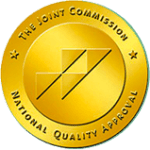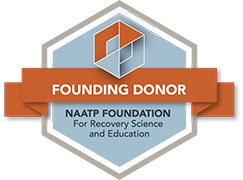Maintaining Recovery Long After Treatment: Key Elements to a Lifestyle of Sobriety
Living a life of sobriety is easily one of the most rewarding paths you could take. You’ve spent so much time working on bettering yourself, and you can probably list many of the steps that you’ve taken over the past year (or years) that have lifted you up in recovery. A lifestyle of sobriety is much more than simply completing treatment, however; it naturally involves a lot of maintenance – as anything worth having takes lots of time and effort. Each person has their own explanation for what makes a lifestyle of recovery, but there’s one commonality to all of these: there are activities, people and routines that everyone in recovery must incorporate into their daily lives in order to reach stability in recovery.
Creating a Lifestyle of Recovery
One person shared her story of living a life of sobriety via the Huffington Post. She explained, “Sobriety took me by surprise as a complete moral, spiritual, physical and mental evaluation.”
Sobriety can fulfill us in so many ways if we incorporate what’s most meaningful and conducive to our happiness, health, and wellbeing. A 2015 study published in the journal Substance Abuse Treatment, Prevention, and Policy sought to explore the concept of recovery and what helps those in recovery maintain their lifestyle of sobriety. They explored the role of lifestyle in maintaining sobriety and uncovered several key areas:
General health and wellbeing
No matter where you’re at in your recovery, you must consider the steps you can take to improve your health and functioning. The healthier we are, the better our mind works, the stronger we are in combatting relapse, the healthier our relationships are likely to be, and the greater the chance of our success in various endeavors. Think about the food that you eat, how often you exercise, how much sleep you tend to get each night – have any of these areas faltered since you completed treatment? If so, it’s time to reevaluate – and come up with an action plan to get you back on track.
Interpersonal relationships and social networks
Researchers from Sheffield Hallam University in the UK published a study in 2015 that highlighted how important social support is for those maintaining sobriety. Even long after treatment has ended, we have to continue attending 12-Step programs and connecting with those we’ve met in recovery. On the other hand, we have to make sure that we’re still distancing ourselves from those who trigger us, make us feel bad about ourselves, or bring us down in our recovery efforts. In a sense, we have to constantly assess our situation to ensure that we’re still maintaining good company – they are the ones that inspire, motivate, and encourage us to keep going.
Material resources
When we live a life in sobriety, we’re better able to follow our dreams. Our mind is filled with a greater sense of clarity, and we’re more capable of reaching our goals. This means that financial resources and other tangible necessities of life come more readily, and we’re able to use that money to fulfill some of the wishes we’ve had for ourselves and others. In 2018, Very Well Mind noted that if money is a trigger for you, find some ways to work through it; have someone help you build a budget, avoid acquiring credit cards, and place your money into a bank account that you must visit if you want to withdrawal cash.
Daily occupation
12-Step programs, such as Alcoholics Anonymous (AA) and Narcotics Anonymous (NA) promote the idea of helping others through sharing the message of recovery. This could be through being a sponsor, counselor, or a similar occupation; nonetheless, sobriety opens doors for you to do something you love. You can truly build a rich, fulfilling life by partaking in work that speaks to your soul – and since recovery is a lifelong process, you have time to explore what matters most to you.
Housing/accommodation
When we’re actively involved in addiction, our housing situation may not be safe for our health and wellbeing. We may not be in a neighborhood or a home that’s necessarily conducive to our recovery – but long-term sobriety gives us a chance to establish a location and home that does make us feel good about ourselves and our lives. It may take some work, but it’s always worth it.
Always Engage
Substance Abuse and Mental Health Services Administration (SAMHSA) notes that love, hope, self-care, support, faith, and so many more spiritual components are what help make up a meaningful life in sobriety. The point is to never slow down on the things that make you truly happy in life. Continue exploring and finding new hobbies that interest you. Continue reaching out to people and growing your recovery family. You never know what opportunity is right around the corner waiting for you.
This is the year to change your life from suffering due to the disease of addiction to thriving in the sunlight of the spirit of sobriety. As the world’s first 12-Step treatment center, established in 1939, High Watch Recovery is dedicated to educating patients on 12-Step principles, actions, philosophies, and lifestyles, preparing them to live a happy and healthy sober life after graduating. For information on our continuum of clinical care and our compassionate approach to treatment, call us today: 860.927.3772.








